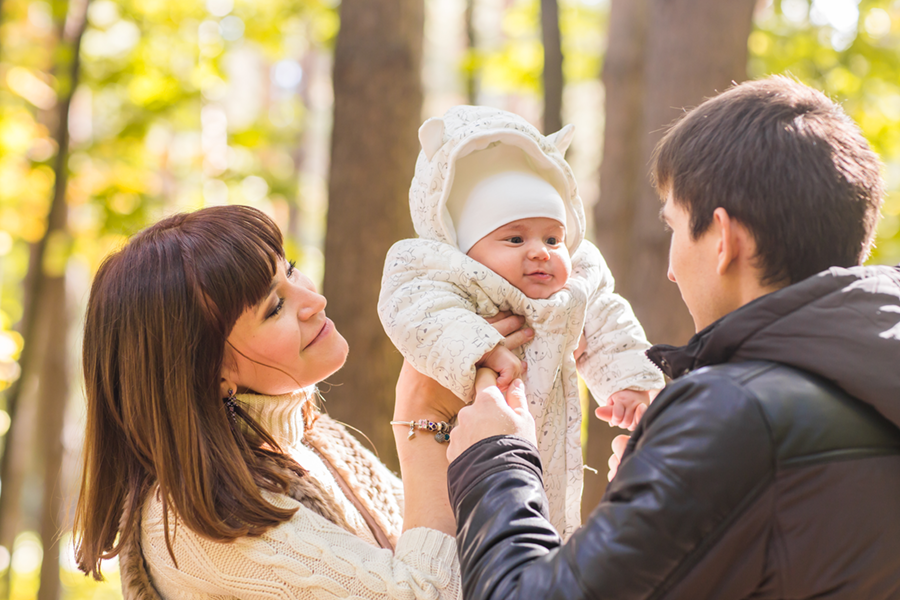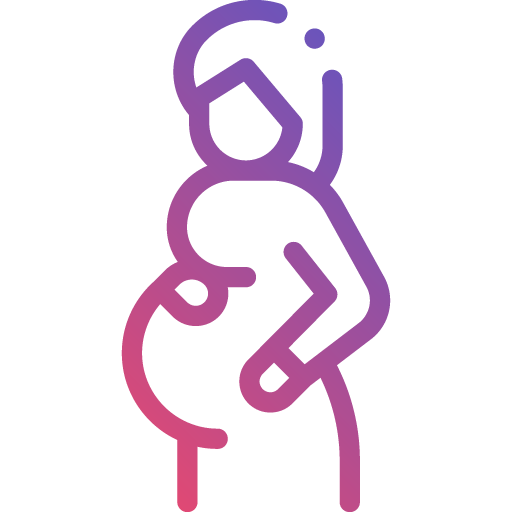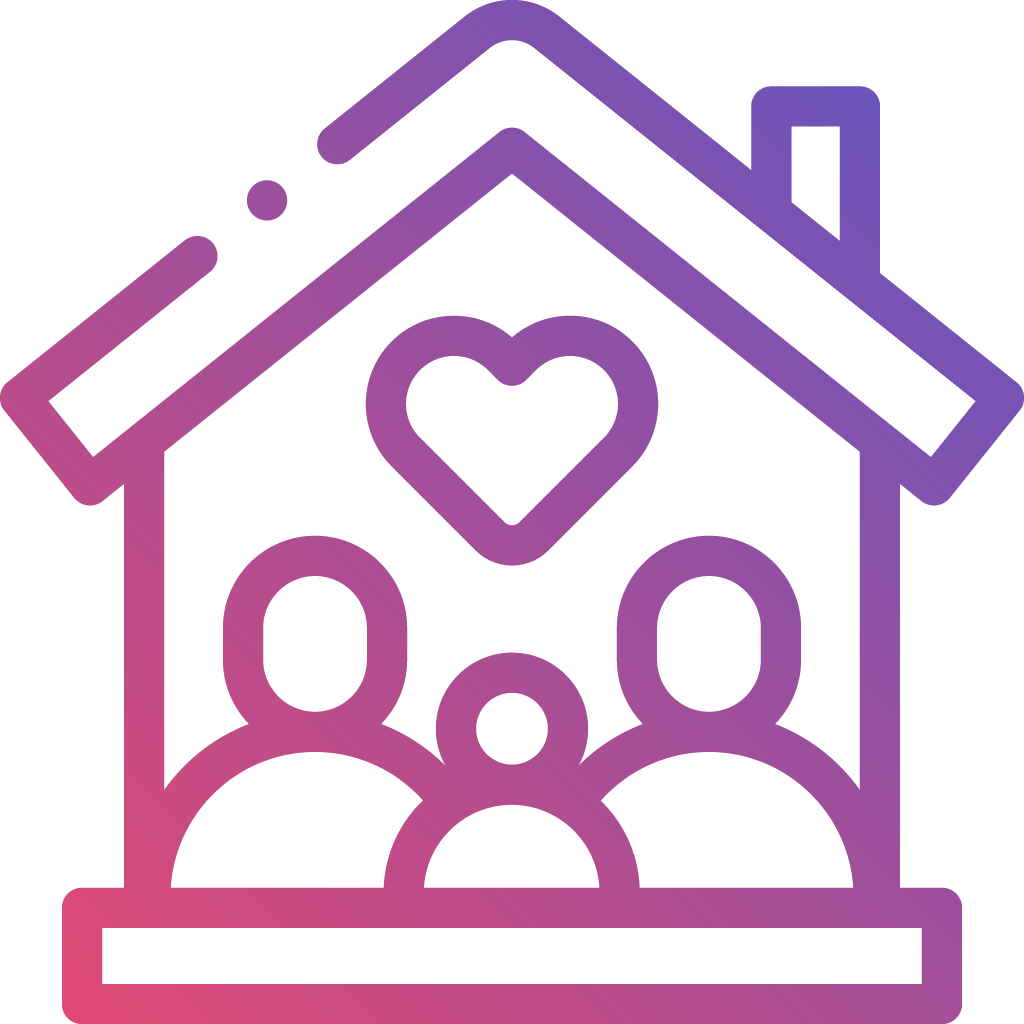Navigating the World of Adoption in the United States
Adoption is a transformative journey that brings families together, creating love, belonging, and hope. In the United States, the realm of adoption is vast and diverse, offering numerous paths to parenthood. In this extensive guide, we’ll explore the various types of adoption available in the U.S., providing insights and guidance to individuals and families considering adoption. Adoption & Beyond, your trusted partner on this remarkable journey, is here to help you navigate this complex terrain.
Understanding the Various Types of Adoption Available
The United States offers a rich tapestry of adoption options, each designed to meet the unique needs and desires of prospective adoptive families. From domestic infant adoption to foster care adoption, kinship adoption, and more, each choice has its distinct characteristics. This comprehensive blog post will unveil the intricacies of these adoption options, empowering you to make informed decisions for your family.
What Is the Most Common Type of Adoption in America?
Statistics and Trends in U.S. Adoption
To comprehend the adoption landscape in the United States, we must dive into the statistics and trends that shape it. By examining the prevalence of different adoption types, we can gain a clearer understanding of the adoption preferences of American families.
The United States has witnessed a significant shift in adoption trends over the years. While international adoption was more common in the past, domestic infant adoption has become the prevailing choice. In 2022, domestic infant adoption constituted approximately 54% of all adoptions in the U.S.
One significant reason for the popularity of domestic infant adoption is the strong desire many families have to experience the formative years of a child’s life. The appeal of adopting a newborn and being there from the very beginning of their journey is a compelling factor. This early connection allows families to bond with the child as they reach important developmental milestones.
The Demand for Adopting Infants
The demand for domestic infant adoption is driven by the emotional appeal of nurturing a child from infancy. This connection with the child’s early years is a significant driving force behind the preference for adopting infants. Families often have a deep-seated desire to provide a loving and stable home for a child at the earliest stage of life, allowing them to be present for the child’s developmental milestones and crucial moments.
What Type of Adoption Is Best?
Choosing the Right Adoption Type for Your Family
Selecting the best adoption type for your family is a deeply personal decision influenced by various factors. It involves evaluating your preferences, goals, and the unique dynamics of your family while also considering the pros and cons of each adoption type.
When choosing the best adoption type, there is no one-size-fits-all answer. The “best” type of adoption is subjective and depends on your family’s unique circumstances and priorities. To make an informed decision, consider the following factors:
Considering Your Adoption Preferences and Goals
Want to adopt a baby? Your adoption preferences, such as the child’s age, the level of openness, and your comfort with international adoption, should align with your adoption goals and values. These factors are pivotal in guiding your choice.
- Age of the Child: Some families may have a strong preference for adopting infants, while others are more open to adopting older children or teenagers. Your comfort level with the age of the child you wish to adopt plays a significant role in determining the best adoption type for your family.
- Level of Openness: Open adoption involves varying degrees of contact between birth parents and adoptive families, allowing for ongoing communication and, in some cases, visits. Closed adoption, on the other hand, maintains confidentiality between birth and adoptive families. Your comfort with the openness in the adoption process is crucial in selecting the right type for your family.
- International vs. Domestic Adoption: Some families are drawn to international adoption, while others prefer domestic adoption. Consider your connection to other cultures, language barriers, and your readiness to navigate the complexities of international adoption.
Pros and Cons of Different Adoption Types
Every adoption type comes with its own set of advantages and challenges. Understanding these pros and cons is essential for making an informed choice that aligns with your family’s dreams and capabilities.
- Domestic Infant Adoption:
- Pros:
- Experience the child’s early years and milestones.
- Often shorter wait times compared to international adoption.
- Typically more predictable in terms of the child’s health and development.
- Cons:
- May involve competition for available infants.
- Birth parent contact and openness can vary, which may require flexibility and clear communication.
- Pros:
- International Adoption:
- Pros:
- The opportunity to provide a loving home to a child from another culture.
- May offer shorter adoption timelines in some cases.
- Usually involves a comprehensive background check and medical information about the child.
- Cons:
- Adoption costs can be higher due to travel and international fees.
- Language and cultural differences may present challenges.
- May require more complex legal procedures.
- Pros:
- Foster Care Adoption:
- Pros:
- The opportunity to provide a stable and loving home to a child in need.
- Typically shorter wait times, especially for older children.
- Often less expensive than other adoption types.
- Cons:
- Children may have experienced trauma or abuse and require specialized support.
- Openness in the adoption may vary based on the child’s case.
- Pros:
- Relative and Kinship Adoption:
- Pros:
- Maintains family bonds and connections.
- May involve a simpler and more streamlined legal process.
- Typically has shorter waiting times.
- Cons:
- May require navigating complex family dynamics and relationships.
- May not be available to families without suitable relatives.
- Pros:
- Special Needs Adoption:
- Pros:
- The opportunity to provide a loving home to a child with unique requirements.
- May offer expedited adoption processes.
- Support and resources are often available for families.
- Cons:
- Requires specialized knowledge and willingness to meet the child’s specific needs.
- May involve medical or developmental challenges.
- Pros:
What Type of Adoption Is Most Common?
A Look at Domestic Infant Adoption
While a variety of adoption options exist, domestic infant adoption stands out as the most common type in the United States. Let’s take a closer look at the intricacies of domestic infant adoption.
Exploring the Prevalence of Other Adoption Types
Before delving into the specifics of domestic infant adoption, it’s important to acknowledge the existence of other adoption types. These options cater to diverse family dynamics, needs, and aspirations.
Understanding the Reasons Behind Common Choices
The choice of domestic infant adoption as the most common adoption type in the U.S. is influenced by several factors. Understanding these reasons can provide valuable insights into the dynamics of adoption preferences in the country.
What Is the Easiest Form of Adoption?
The Simplified Process of Foster Care Adoption
For those seeking a simplified and flexible adoption experience, foster care adoption often emerges as the least complicated form of adoption. This section will guide you through the process and the factors to consider when opting for foster care adoption.
Openness and Flexibility in the Adoption Journey
Foster care adoption is known for its flexibility and openness. Unlike some other forms of adoption, it allows for a degree of flexibility in the process and offers unique advantages.
What Is the Difference Between a Public and Private Adoption Agency?
Public vs. Private Adoption Agencies: A Comprehensive Comparison
Adoption agencies play a pivotal role in the adoption process, and choosing the right one is crucial. In this section, we’ll provide a comprehensive comparison between public and private adoption agencies to help you make an informed choice.
Understanding the Services and Procedures Offered by Each
Public and private adoption agencies offer distinct services and follow different procedures. Understanding these differences can aid in your decision-making process.
How to Choose the Right Agency for Your Adoption
Selecting the right adoption agency is a critical step in your adoption journey. We’ll offer guidance on factors to consider when choosing an agency that aligns with your goals and values.
How Many Types of Adoption Are There?
The Diversity of Adoption in the U.S.
Adoption is a diverse and inclusive world catering to various family structures, desires, and circumstances. In addition to the common adoption types mentioned earlier, there are also relative and kinship adoptions and special needs adoptions. Each option caters to specific circumstances and offers the chance to provide a loving home to children in need.
International Adoption: A Window to the World
The Process of Adopting a Child from Another Country
International adoption offers a unique opportunity to expand your family while providing a loving home to a child from another country. This section will delve into the steps and requirements of international adoption.
Understanding International Adoption Requirements
International adoption involves navigating the legal and cultural aspects of the child’s home country. Requirements for international adoption may include home studies, background checks, and immigration procedures.
The Unique Rewards of Adopting Internationally
International adoption has the unique reward of connecting with another culture and broadening your family’s horizons. Adopting internationally offers a rich tapestry of experiences and memories.
Domestic Infant Adoption: Welcoming a Newborn into Your Family
The Journey of Adopting a Newborn in the U.S.
Domestic infant adoption involves welcoming a newborn into your family and providing a loving and stable home. This section will guide you through the steps and considerations of this beautiful journey.
Open vs. Closed Domestic Infant Adoption
Understanding the differences between open and closed domestic infant adoption is crucial. Open adoption allows for contact with birth parents, while closed adoption keeps the identities confidential.
How Birth Parents Choose Adoptive Families
Birth parents play an active role in choosing adoptive families for their child. Understanding this process is essential for prospective adoptive parents.
Foster Care Adoption: Providing a Loving Home to Waiting Children
The Heartwarming Experience of Foster Care Adoption
Foster care adoption is a heartwarming experience that allows you to provide a loving home to waiting children. We will explore the emotional and legal aspects of this form of adoption.
Meeting Older Children’s Adoption Needs
Foster care adoption often involves older children with specific needs. Be prepared to support and nurture them is a crucial part of the journey.
The Legal Process and Support for Foster Care Adoption
Navigating the legal aspects of foster care adoption and accessing support services are essential for a successful and fulfilling adoption experience.
Relative and Kinship Adoption: Keeping Families Together
Preserving Family Bonds through Adoption
Relative and kinship adoption is a unique form of adoption that involves adopting a child within the extended family. This section will explore the dynamics and legal considerations involved.
The Unique Dynamics of Relative and Kinship Adoption
Adopting a child within the family introduces its own set of dynamics and emotions, which are distinct from other adoption types.
Legal and Emotional Considerations
Navigating the legal and emotional aspects of relative and kinship adoption is vital for ensuring the well-being of the child and maintaining family bonds.
Special Needs Adoption: Embracing Unique Challenges and Rewards
The Fulfillment of Nurturing Children with Unique Requirements
Adopting a child with special needs can be a deeply fulfilling experience, as it allows you to provide the care and support that these children require.
Choosing the Right Type of Adoption for Your Family
The world of adoption offers a multitude of paths, each unique and meaningful in its own way. As you embark on the journey of building your family through adoption, Adoption & Beyond is here to guide you. We are committed to helping you make the right choice for your family, providing the support and resources you need to create a loving and nurturing home for children in need. Embrace the beautiful adoption journey and build your family with Adoption & Beyond by your side. Your family’s story of love, hope, and belonging is waiting to be written through adoption.









